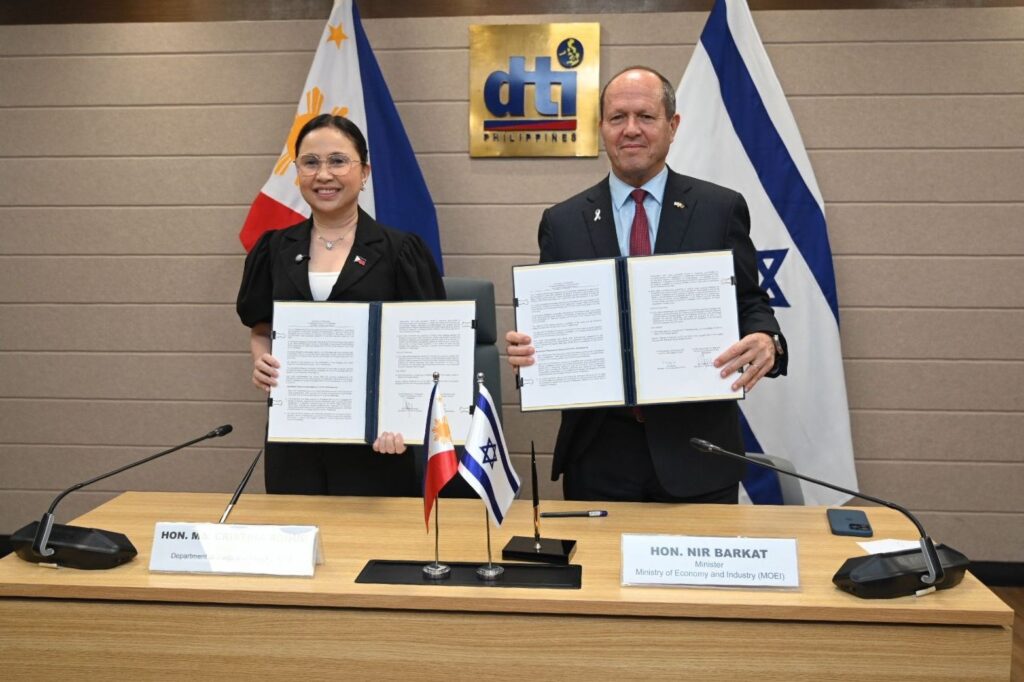
(Photo credit: Israel’s Ministry of Economy and Industry Spokesperson)
Israel’s Minister of Economy and Industry MK Nir Barkat and Philippines’ Trade and Industry Secretary Cristina Roque respectively led the Israel and the Philippine delegations of the Joint Economic Committee that convened for the first time, late July, at the DTI office in Makati City.
The committee meeting was part of the economic and diplomatic visit of Minister Barkat to the Philippines to tackle core areas of economic cooperation between the two countries.
The meeting led to the announcement by the two industry heads to open talks and examine the feasibility of opening negotiations towards a free trade agreement (FTA) between Israel and the Philippines.
Minister Barkat said, “A free trade agreement with the Philippines will provide a competitive advantage to Israeli exporters vis-à-vis countries that already enjoy preferential access to one of the growing and central markets in Asia. The agreement is expected to open new opportunities for both Israeli and Philippine companies, diversify Israel’s export targets, and help reduce the cost of living as part of the policy that I am leading.”
He noted the Philippines is seen by Israel as a a strategic partner for joint efforts and cooperation in a variety of areas that include agriculture, water, energy, cyber, health, and sustainability.
“We are working to expand Israel’s economic ties with East Asian countries, as part of a comprehensive approach to developing new markets for Israeli exports,” he added.
Toward the end of the meeting, it was agreed that working mechanisms and timetables for preparing the negotiations would be formulated in the coming months.
Aside from FTA, steps to encourage mutual trade and tourism were also discussed, including the need to consider opening a direct flight route between the countries to strengthen trade and tourism ties.
According to reports, the total trade volume between the two countries is placed approximately at USD408 million: exports from Israel, mainly machinery, electronics, chips, communications equipment and industry, total to approximately USD189 million; while imports from the Philippines, mainly electronic components, computer equipment and printed circuits, total to approximately USD219 million.


